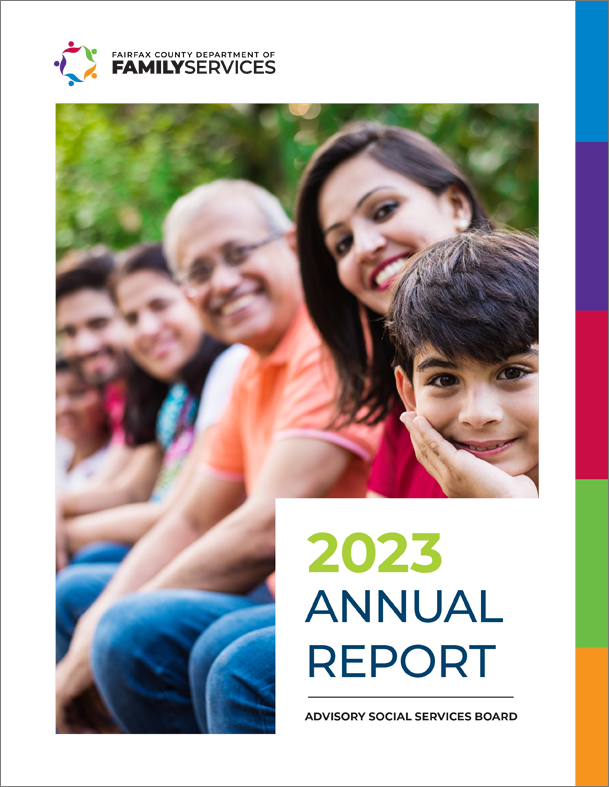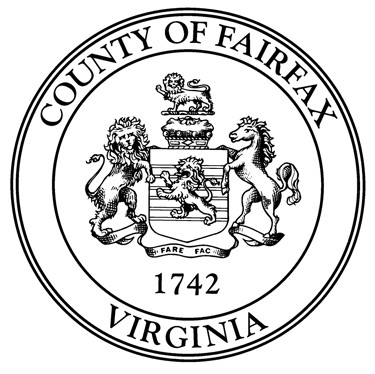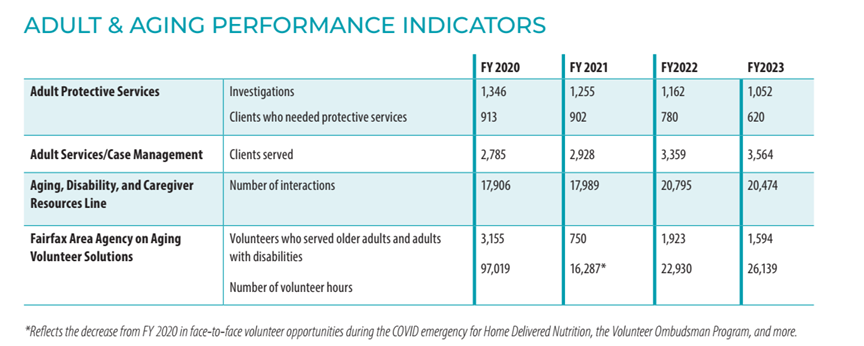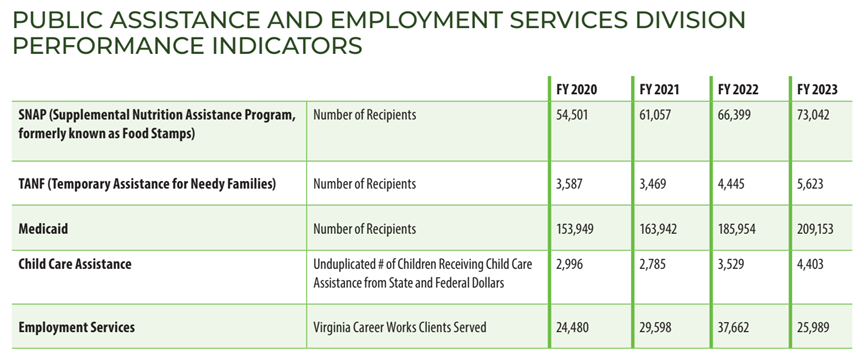
The Domestic and Sexual Violence Services (DSVS) Division offers compassionate and comprehensive state-accredited programs for women, men, teens, and children who have been affected by domestic and sexual violence, stalking, and human trafficking.
Domestic and Sexual Violence Services
Provides a 24-hour crisis hotline, the Lethality Assessment Protocol (LAP), advocacy, information, counseling, resources, and liaison for emergency shelter for victims and survivors of interpersonal violence. The division also provides countywide coordination to improve access to services and the community responses to interpersonal violence. DSVS provides intervention treatment to persons that do harm to family members. DSVS also provides education, outreach, and training on issues related to interpersonal and gender-based violence such as domestic and sexual violence, human trafficking, and stalking.
Advocacy Services
Enhances safety for victims of domestic violence, sexual violence, and stalking through counseling, court education and accompaniment, and support accessing appropriate resources.
Community Engagement
Promotes awareness of the impact of interpersonal violence, including its overlap with other social determinants of health and wellbeing. The unit operates Fairfax County’s Domestic and Sexual Violence 24-Hour Hotline and the LAP, and Hospital Accompaniment Support Advocates (HASA) provide support before, during, and after a forensic exam. Community Engagement provides programs and trainings focused on prevention and intervention strategies.
Coordinated Community Response
Engages human service and public safety agencies, as well as nonprofit organizations and community leaders, in identifying and implementing best practices, developing innovative prevention and intervention programming, and raising awareness of the prevalence and impact of interpersonal violence in our community.
Counseling Services
Provides short-term, individual, family, and group counseling to survivors of domestic and sexual violence, stalking, teen dating violence, and human trafficking.
Anger and Domestic Abuse Prevention and Treatment (ADAPT)
Offers violence intervention services for adults who have caused harm to household/family members or dating partners and violence prevention services for high-conflict couples.
Human Trafficking Services
Provides hotline services, advocacy, and counseling to victims of human trafficking. The unit works closely with other regional, county, and community groups to collect data, provide training, and develop response plans.
Stalking Services
Provides direct advocacy and counseling services for survivors of stalking either in person or through the Fairfax County Domestic and Sexual Violence 24-Hour Hotline. The unit provides training and technical assistance to allied professionals to increase their capacity to respond to survivors of stalking in their work.
 The Advisory Social Services Board interests itself in all matters pertaining to the wellbeing of the residents of Fairfax County. The Board monitors the formation and implementation of social support programs; meets with and advises the Director of the Department of Family Services, for the purpose of making recommendations on policy matters; makes an annual report to the Board of Supervisors concerning the administration of the social services programs; and submits other reports as appropriate.
The Advisory Social Services Board interests itself in all matters pertaining to the wellbeing of the residents of Fairfax County. The Board monitors the formation and implementation of social support programs; meets with and advises the Director of the Department of Family Services, for the purpose of making recommendations on policy matters; makes an annual report to the Board of Supervisors concerning the administration of the social services programs; and submits other reports as appropriate.





 The older adult population in Fairfax County continues to grow, resulting in increased caseloads. Over the last several fiscal years there are significant increases in calls for assistance, nutritional programming, caregiver services, home-based care services and Medicaid LTSS screenings. The acuity and complexity of client needs is also growing, often due to a combination of physical, mental, socioeconomic, and cognitive challenges, compounding the intensity of service provision required.
The older adult population in Fairfax County continues to grow, resulting in increased caseloads. Over the last several fiscal years there are significant increases in calls for assistance, nutritional programming, caregiver services, home-based care services and Medicaid LTSS screenings. The acuity and complexity of client needs is also growing, often due to a combination of physical, mental, socioeconomic, and cognitive challenges, compounding the intensity of service provision required. A 67-year-old client needed help finding housing after she was evicted from her apartment due to hoarding, bed bug infestation, and non-payment of rent. She had started living in her car in order to keep her possessions. The client had failing health and was frequently hospitalized because her health condition was challenging to manage. Our Adult Protective Services (APS) worker assigned to the case treated the client with dignity and respect throughout their working relationship and connected the client to community and County resources including housing supports, a nutritional program to address food insecurity, and bedbug cleaning services to treat the possessions in the vehicle which allowed the client to successfully enter an assisted living facility. The DFS APS worker was a pivotal partner in addressing the client’s care needs which has resulted in the client having a stable housing option that allows her to maintain her independence while receiving needed support.
A 67-year-old client needed help finding housing after she was evicted from her apartment due to hoarding, bed bug infestation, and non-payment of rent. She had started living in her car in order to keep her possessions. The client had failing health and was frequently hospitalized because her health condition was challenging to manage. Our Adult Protective Services (APS) worker assigned to the case treated the client with dignity and respect throughout their working relationship and connected the client to community and County resources including housing supports, a nutritional program to address food insecurity, and bedbug cleaning services to treat the possessions in the vehicle which allowed the client to successfully enter an assisted living facility. The DFS APS worker was a pivotal partner in addressing the client’s care needs which has resulted in the client having a stable housing option that allows her to maintain her independence while receiving needed support.


 The Children’s Services Act (CSA) program experienced a reduction of approximately 200 children in the number of youths served annually during COVID reflecting the decrease in services by child-serving agencies. In FY 2023, referrals began increasing towards pre-COVID levels with 1,087 youth served. Of those youths served, 90 percent received their services in the community which is consistent with the goal of meeting youth’s needs within the community whenever possible.
The Children’s Services Act (CSA) program experienced a reduction of approximately 200 children in the number of youths served annually during COVID reflecting the decrease in services by child-serving agencies. In FY 2023, referrals began increasing towards pre-COVID levels with 1,087 youth served. Of those youths served, 90 percent received their services in the community which is consistent with the goal of meeting youth’s needs within the community whenever possible. Two young children entered foster care after their mother experienced a non-fatal overdose and their father’s addiction prevented him from providing care to the children. The Department of Family Services’ Children, Youth, and Families Division managed the overall foster care services plan using funding from the Children’s Services Act (CSA) to provide evaluations, therapy, supervised visitation with the parents and other foster care services to support reunification with the parents. The mother, with the assistance of these treatment services, started on her journey to sobriety. She checked into the Fairfax Detox program to wean off drugs. After completing the program, she entered an intensive outpatient program and participated in substance abuse group therapy four times a week, and weekly individual psychotherapy. Eventually, the mother was able to secure full-time employment, attend her outpatient substance abuse groups, and establish independent housing on her own, and her children were returned to her. DFS continued to monitor the children in the home and at childcare on a weekly basis to ensure safety and to support their mother during this transition time. She continues to participate in her relapse prevention program and is grateful to the providers and her family for their support.
Two young children entered foster care after their mother experienced a non-fatal overdose and their father’s addiction prevented him from providing care to the children. The Department of Family Services’ Children, Youth, and Families Division managed the overall foster care services plan using funding from the Children’s Services Act (CSA) to provide evaluations, therapy, supervised visitation with the parents and other foster care services to support reunification with the parents. The mother, with the assistance of these treatment services, started on her journey to sobriety. She checked into the Fairfax Detox program to wean off drugs. After completing the program, she entered an intensive outpatient program and participated in substance abuse group therapy four times a week, and weekly individual psychotherapy. Eventually, the mother was able to secure full-time employment, attend her outpatient substance abuse groups, and establish independent housing on her own, and her children were returned to her. DFS continued to monitor the children in the home and at childcare on a weekly basis to ensure safety and to support their mother during this transition time. She continues to participate in her relapse prevention program and is grateful to the providers and her family for their support.


 The Children, Youth, and Families Division continues to leverage evidence-based practices and partner with industry experts to deepen and strengthen practice in its strategic priority areas. Complicating the work is a high position vacancy rate which hovered around 20 percent for most of FY 2023. Stabilizing the workforce is the highest priority for the division at this time and will remain so until staffing reaches a level that supports the work needed to meet the mission of keeping children safe and strengthening families.
The Children, Youth, and Families Division continues to leverage evidence-based practices and partner with industry experts to deepen and strengthen practice in its strategic priority areas. Complicating the work is a high position vacancy rate which hovered around 20 percent for most of FY 2023. Stabilizing the workforce is the highest priority for the division at this time and will remain so until staffing reaches a level that supports the work needed to meet the mission of keeping children safe and strengthening families. The ASSB received a presentation from the Fairfax County Office of the County Attorney and held discussions regarding the challenges with legal representation for parents in child welfare cases. The issue is, the compensation for these attorneys is significantly low compared to the volume of work. Attorneys are compensated $120 for the first three hearings in a child welfare case. There is a risk that the pool of available attorneys will dissipate and adversely impact the legal process in the child welfare system.
The ASSB received a presentation from the Fairfax County Office of the County Attorney and held discussions regarding the challenges with legal representation for parents in child welfare cases. The issue is, the compensation for these attorneys is significantly low compared to the volume of work. Attorneys are compensated $120 for the first three hearings in a child welfare case. There is a risk that the pool of available attorneys will dissipate and adversely impact the legal process in the child welfare system. DFS received a phone call about an urgent situation likely to result in a separation for 6-month-old baby. The baby’s father was not able to be located, but within an hour, our DFS Kinship Navigator found her maternal grandparents, completed the necessary paperwork for emergency approval, and had the baby placed in the grandparents’ home by that afternoon. Living with her grandparents allows the baby to maintain familial and cultural ties. Based on research, we know that by being placed with relatives, she will likely remain in foster care a shorter time than if she were placed in a foster home with strangers. DFS worked closely with the grandparents to prepare them for the unique dynamics of being kin caregivers, discussing such things as how to set boundaries with their daughter to ensure the baby’s safety. Becoming a kinship caregiver can be a challenging and emotional experience, but the baby’s grandparents feel it is well worth the reward of watching their granddaughter grow and develop, knowing that she will celebrate her first birthday surrounded by family.
DFS received a phone call about an urgent situation likely to result in a separation for 6-month-old baby. The baby’s father was not able to be located, but within an hour, our DFS Kinship Navigator found her maternal grandparents, completed the necessary paperwork for emergency approval, and had the baby placed in the grandparents’ home by that afternoon. Living with her grandparents allows the baby to maintain familial and cultural ties. Based on research, we know that by being placed with relatives, she will likely remain in foster care a shorter time than if she were placed in a foster home with strangers. DFS worked closely with the grandparents to prepare them for the unique dynamics of being kin caregivers, discussing such things as how to set boundaries with their daughter to ensure the baby’s safety. Becoming a kinship caregiver can be a challenging and emotional experience, but the baby’s grandparents feel it is well worth the reward of watching their granddaughter grow and develop, knowing that she will celebrate her first birthday surrounded by family.


 Three years after a record spike during the pandemic, incidence of interpersonal violence continued to trend upward in FY 2023. Domestic and Sexual Violence Services are still experiencing high numbers of residents seeking services and the call volume to the DSVS 24-hour hotline has increased as well. Clients reported more severe physical assaults, fewer economic resources, and less social support.
Three years after a record spike during the pandemic, incidence of interpersonal violence continued to trend upward in FY 2023. Domestic and Sexual Violence Services are still experiencing high numbers of residents seeking services and the call volume to the DSVS 24-hour hotline has increased as well. Clients reported more severe physical assaults, fewer economic resources, and less social support. A 5-year-old girl who witnessed domestic violence in the home had developed severe insomnia and frequent crying spells. The child told the counselor she saw and heard her parents fighting as she was trying to go to sleep. Through play therapy, the counselor helped the child resolve her sleeping issues and by the end of therapy, she no longer had frequent crying spells or trouble during the exchange of visits with her father. The counselor also helped her mom plan a nightly routine and taught them deep breathing techniques they could practice together. The counselor helped both the girl and her mom plan for safety and taught them how to get help if domestic violence occurred in the future. The mother also improved her social support network by developing close friendships with several other mothers and the child enjoys playing with their children.
A 5-year-old girl who witnessed domestic violence in the home had developed severe insomnia and frequent crying spells. The child told the counselor she saw and heard her parents fighting as she was trying to go to sleep. Through play therapy, the counselor helped the child resolve her sleeping issues and by the end of therapy, she no longer had frequent crying spells or trouble during the exchange of visits with her father. The counselor also helped her mom plan a nightly routine and taught them deep breathing techniques they could practice together. The counselor helped both the girl and her mom plan for safety and taught them how to get help if domestic violence occurred in the future. The mother also improved her social support network by developing close friendships with several other mothers and the child enjoys playing with their children.


 The number of recipients receiving public assistance continued to grow throughout FY 2023, primarily due to cumulative continuances of state and federal flexibilities related to the Public Health Emergency (PHE). However, with the federal declaration ending the PHE on March 31, 2023, the number is expected to gradually decline due to the resumption of Medicaid eligibility redeterminations. Although the number of recipients may decline, these redeterminations have resulted in increased workloads for staff who are now responsible for processing thousands of cases which could not be reassessed for eligibility while the PHE was in effect. Additionally, with inflation trending upward, the rising cost of food, and the number of households experiencing food insecurity, the Supplemental Nutrition Assistance Program (SNAP) number of recipients increased to an all-time high of 73,042 people, primarily children.
The number of recipients receiving public assistance continued to grow throughout FY 2023, primarily due to cumulative continuances of state and federal flexibilities related to the Public Health Emergency (PHE). However, with the federal declaration ending the PHE on March 31, 2023, the number is expected to gradually decline due to the resumption of Medicaid eligibility redeterminations. Although the number of recipients may decline, these redeterminations have resulted in increased workloads for staff who are now responsible for processing thousands of cases which could not be reassessed for eligibility while the PHE was in effect. Additionally, with inflation trending upward, the rising cost of food, and the number of households experiencing food insecurity, the Supplemental Nutrition Assistance Program (SNAP) number of recipients increased to an all-time high of 73,042 people, primarily children. A single mother with one son, with very little family support, began working with the VIEW program just before the start of COVID. She expressed interest in the healthcare field and received assistance in addressing childcare and transportation needs as well as accessing FAFSA for financial aid. She enrolled in Northern Virginia Community College, initially planning to study dental hygiene, but changed her major to nursing. Throughout COVID, the client continued to receive assistance through VIEW and attended her nursing classes. In January 2023, she completed her training and quickly passed the NCLEX (nursing licensure). She was offered a full-time nursing position with Inova earning $34 per hour. She continues to receive transitional assistance (transportation and reduced childcare) through the VIEW Transition Program (VTP).
A single mother with one son, with very little family support, began working with the VIEW program just before the start of COVID. She expressed interest in the healthcare field and received assistance in addressing childcare and transportation needs as well as accessing FAFSA for financial aid. She enrolled in Northern Virginia Community College, initially planning to study dental hygiene, but changed her major to nursing. Throughout COVID, the client continued to receive assistance through VIEW and attended her nursing classes. In January 2023, she completed her training and quickly passed the NCLEX (nursing licensure). She was offered a full-time nursing position with Inova earning $34 per hour. She continues to receive transitional assistance (transportation and reduced childcare) through the VIEW Transition Program (VTP).